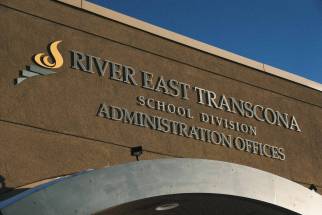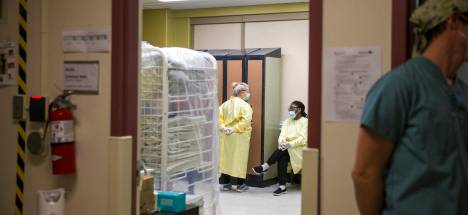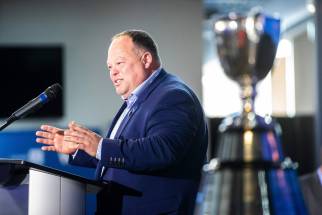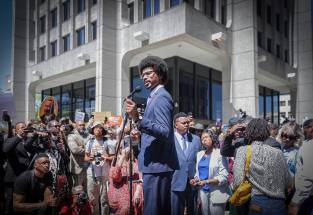Big Blue in the black Bombers profit $4.9 million in 2022
Read this article for free:
or
Already have an account? Log in here »
To continue reading, please subscribe:
Monthly Digital Subscription
$0 for the first 4 weeks*
- Enjoy unlimited reading on winnipegfreepress.com
- Read the E-Edition, our digital replica newspaper
- Access News Break, our award-winning app
- Play interactive puzzles
*No charge for 4 weeks then price increases to the regular rate of $19.00 plus GST every four weeks. Offer available to new and qualified returning subscribers only. Cancel any time.
Monthly Digital Subscription
$4.75/week*
- Enjoy unlimited reading on winnipegfreepress.com
- Read the E-Edition, our digital replica newspaper
- Access News Break, our award-winning app
- Play interactive puzzles
*Billed as $19 plus GST every four weeks. Cancel any time.
To continue reading, please subscribe:
Add Free Press access to your Brandon Sun subscription for only an additional
$1 for the first 4 weeks*
*Your next subscription payment will increase by $1.00 and you will be charged $16.99 plus GST for four weeks. After four weeks, your payment will increase to $23.99 plus GST every four weeks.
Read unlimited articles for free today:
or
Already have an account? Log in here »
Hey there, time traveller!
This article was published 13/04/2023 (976 days ago), so information in it may no longer be current.
The Winnipeg Blue Bombers weren’t able to clinch a third consecutive Grey Cup championship, but that didn’t stop the front offices of the CFL club from feeling like winners in 2022.
The Bombers announced Thursday an operating profit of $4.9 million over the last calendar year. The boost to the bottom line marks an increase of $2.8 million from 2021, a year the Blue and Gold were forced to play a 14-game regular season — down from the usual 18 games — owing to the COVID-19 pandemic.
“It tells you two things. One, that going to the Grey Cup for three straight years, having a winning record like we do at home and winning two of those Grey Cups has a huge impact,” Bombers president and CEO Wade Miller told the Free Press in a phone interview. “And then everything we do around the game-day experience and for our fans and season-ticket members has paid off.”
MIKAELA MACKENZIE / WINNIPEG FREE PRESS FILES “Everything we do around the game-day experience and for our fans and season-ticket members has paid off,” said Wade Miller, president and CEO of the Winnipeg Football Club.
Revenue generated came in at $45.4 million, which topped last year by $12.5 million. Not only did the Bombers benefit from a full schedule, not to mention hosting the West Final for a second straight year, they also led the league in attendance for the first time, with more than 30,000 fans at five games.
An average of 28,642 fans showed up at each game last season, which is the fourth-highest total in franchise history. Overall, the Bombers generated $13.8 million in ticket sales, accounting for nearly a third of the club’s revenue.
“It’s a gate-driven league, so it’s massively important for us,” noted Miller. “Our fans haven’t wavered and are critical to our success. They’ve been with us the whole time.”
Miller pointed to the strong response from corporate sponsors, many of which have stuck with them through the COVID-19 pandemic that wiped out the entire 2020 season. Miller called it a record-setting year for corporate dollars, though he didn’t share exact numbers, nor are they clearly stated in the report.
“It’s a gate-driven league, so it’s massively important for us… Our fans haven’t wavered and are critical to our success. They’ve been with us the whole time.”–Wade Miller
“We want to make it easy for our corporate partners to work with us and we have a responsibility to help them grow their business, too,” Miller said. “We talk about the power of the W. We set a record last year, largest ever, and we’re going to continue to grow that.”
Miller also credited the work of volunteers to help put on games, as well as the players for a strong willingness to engage with fans across the city and province. The Bombers have set the standard across the CFL in this regard, with several players, including a few from the U.S., making Winnipeg their home year-round.
Indeed, the Bombers have built a winning culture on the field — including an overall record of 73-34 dating back to 2016, and a dominating mark of 26-6 over the last two seasons — as well as off it.
“We had a plan when we started here and it took a while to get where we wanted to get to. Now we just keep executing on that and keep listening to our fans and keep adding more value,” Miller said. “We go back to what our purpose is, and our purpose is to win championships, make memories and sell tickets. That is what we’ve talked about since 2014 and we are just going to keep working towards that every day.”
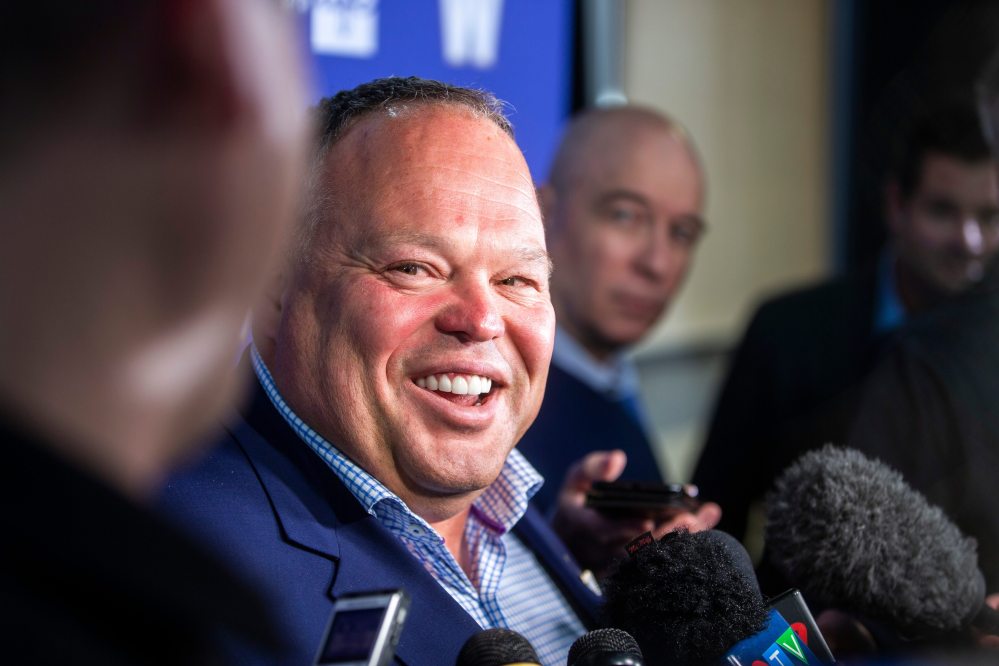
He added: “We have such a talented group on the field, but off the field, the commitment our staff makes here is just phenomenal. I’m just so lucky to work with such a talented group of people every single day.”
Operating expenses totalled $40.5 million, a jump of $9.8 million compared with 2021. Football operations, including team salaries and travel costs, accounted for the biggest chunk, totalling a bit more than $13 million.
During the 2021 season, the Bombers entered into a new agreement with the Manitoba government and Triple B Inc., resulting in the establishment of a capital fund that included a $10.2 million contribution from the province to be used for stadium maintenance and improvements. Prior to the new deal, the club wasn’t on the hook for these bills, although they were expected to make significant payments against the stadium determined through a formula based on profits and often to the tune of millions of dollars.
They no longer have to make the costly stadium payments — the team’s $85-million dollar loan from the provincial government, of which only $6 million was paid off, was forgiven in the new deal — that often left the club in the red. Instead, there’s a new formula that has the football club contributing to the capital fund each year.
“We go back to what our purpose is, and our purpose is to win championships, make memories and sell tickets. That is what we’ve talked about since 2014 and we are just going to keep working towards that every day.”–Wade Miller
Under the new deal, the first $1 million in profits will go to the stadium capital fund and the second $1 million would then be transferred to the team’s operating reserve. Any additional profits would then be added to the capital fund until it’s “fully funded,” which means the WFC would have enough money in the fund to cover major capital upgrades for the next five years and 80 per cent of anticipated capital costs over eight years. The anticipated costs are unpredictable and alter over time.
The Bombers allocated $2.9 million of their profits in 2022 to the capital fund, a significant increase from the $576,000 they transferred in 2021. The capital fund sits at $11.5 million. The reserve fund, with its additional $1 million from last year, is now at $5.6 million.
The Bombers spent $2.2 million of their capital fund in 2022.
RYAN REMIORZ / THE CANADIAN PRESS FILES Indeed, the Bombers have built a winning culture on the field — including an overall record of 73-34 dating back to 2016, and a dominating mark of 26-6 over the last two seasons — as well as off it.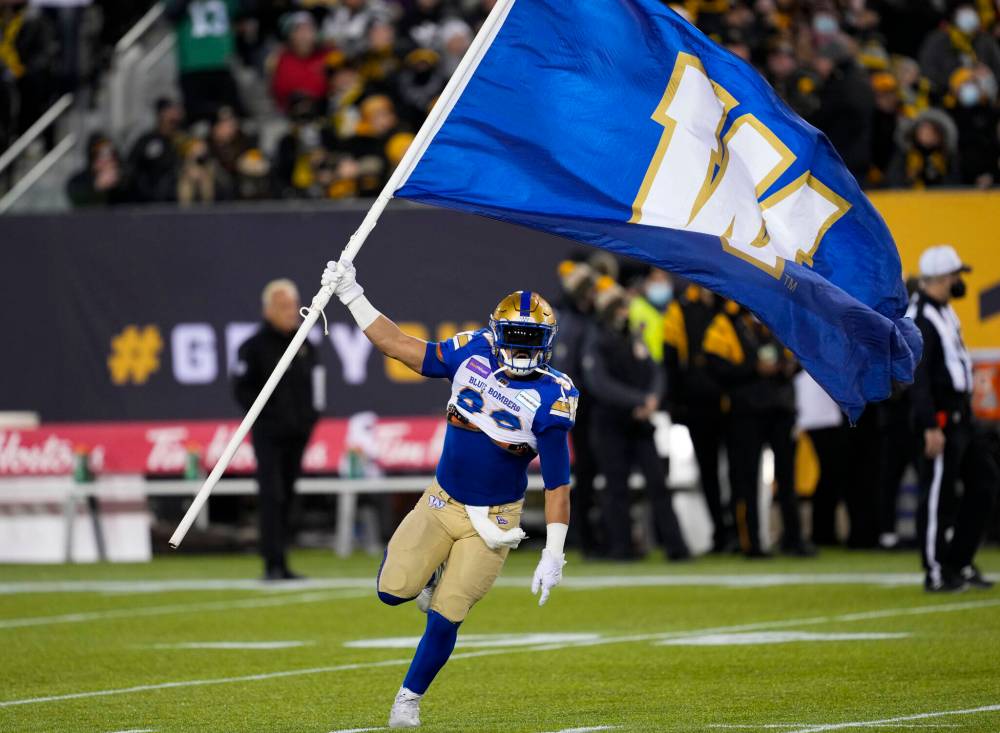
“Every year, our entire operating profit will be allocated to the capital fund or operating reserve,” Miller said. “It’s used to maintain the stadium and to do all the work that you need to do to keep a stadium of this size going and extend the life of the facility.”
Valour FC, the city’s pro soccer team, ended up costing the Bombers nearly $1 million, eating up the remaining profits. It’s the second straight season they have finished in red, with a loss of $600,000 in 2021, after being profitable in 2019.
“In 2019 we were getting 4,500 to 5,000 fans per game,” Miller said of Valour FC. “That’s what this team needs to have in the stands to be viable. We’re working hard to make that happen.”
Jeff.Hamilton@freepress.mb.ca
Twitter: @jeffkhamilton

Jeff Hamilton
Multimedia producer
Jeff Hamilton is a sports and investigative reporter. Jeff joined the Free Press newsroom in April 2015, and has been covering the local sports scene since graduating from Carleton University’s journalism program in 2012. Read more about Jeff.
Every piece of reporting Jeff produces is reviewed by an editing team before it is posted online or published in print — part of the Free Press‘s tradition, since 1872, of producing reliable independent journalism. Read more about Free Press’s history and mandate, and learn how our newsroom operates.
Our newsroom depends on a growing audience of readers to power our journalism. If you are not a paid reader, please consider becoming a subscriber.
Our newsroom depends on its audience of readers to power our journalism. Thank you for your support.





